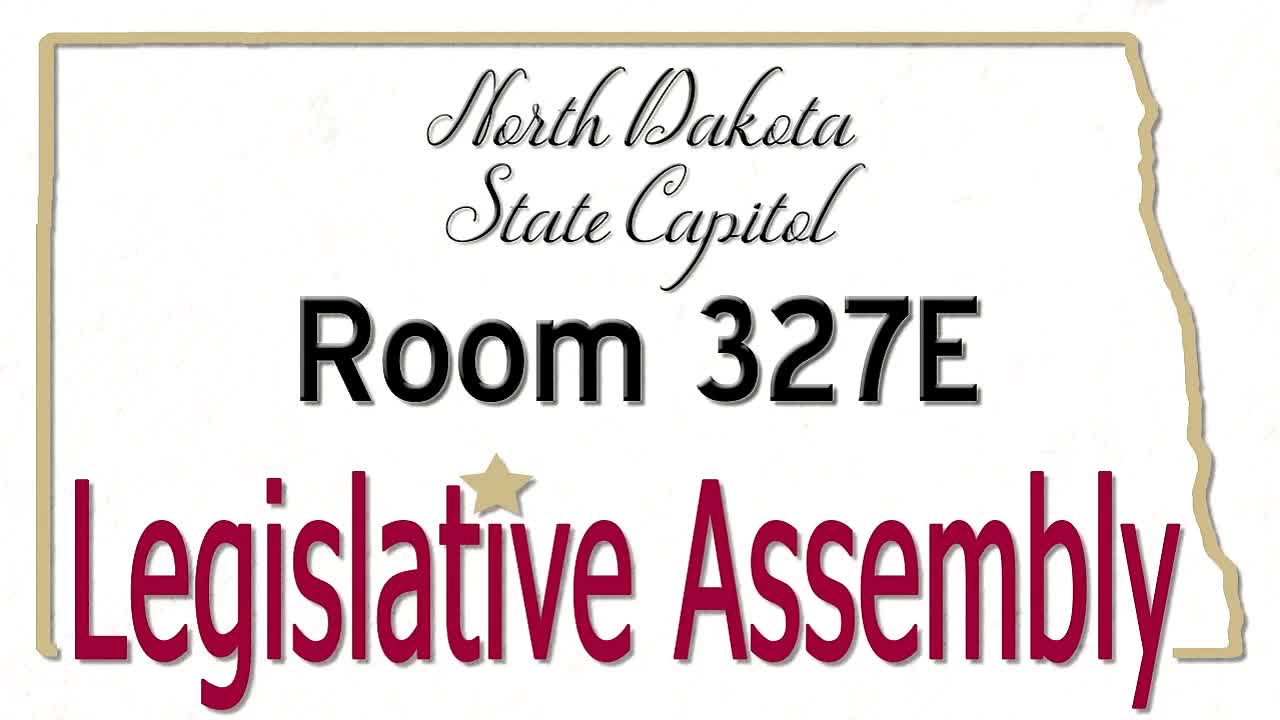Conference committee advances rewrite of North Dakota campaign finance law, schedules further work
Get AI-powered insights, summaries, and transcripts
Subscribe
Summary
A joint conference committee met to reconcile House and Senate versions of House Bill 1377, a comprehensive rewrite of North Dakota’s campaign finance statutes that would reorganize Century Code sections, change reporting thresholds and dates, and fund a new online filing system.
A joint conference committee met to reconcile House and Senate versions of House Bill 1377, a comprehensive rewrite of North Dakota’s campaign finance statutes that would reorganize Century Code sections, change reporting thresholds and dates, and fund a new online filing system.
The committee heard a briefing from Senator Rohrs and Michael Howard, North Dakota secretary of state, who said the bill’s primary aim is to improve transparency and make filings easier for candidates and the public. "The goals of any bill that we pass number one is transparency," Senator Rohrs said. Secretary Howard described the current chapter as "a mishmash of edits through over the years" and said the bill mainly relocates existing language and adds implementation details for a new campaign finance system.
The bill would move campaign finance language within the Century Code, change the minimum itemization threshold from $200 to $2.50 (with a $100 threshold remaining for ballot-measure committees), and adopt a rolling balance approach so beginning and ending fund balances are displayed in a checkbook-style interface. It would also make small contributions and expenditures under $2.50 exempt from public-records release, clarify reporting obligations for federal political committees that maintain balances, and add an explicit exemption allowing the governor to use the governor’s residence for campaign activity. Secretary Howard said the office intends to provide filer instructions for the new system.
The committee discussed replacing overlapping, relative reporting deadlines (the current "fortieth day before" system) with fixed calendar windows: pre-primary reporting from Jan. 1 through April 30, pre-general from May 1 through Sept. 30, and year-end reporting Oct. 1 through Dec. 31 for candidates on the ballot that year. Special elections would retain a fortieth-day rule for the period prior to the special election. The bill keeps 48-hour reporting for certain contributions and preserves itemization thresholds for expenditures above $500.
Members also reviewed language addressing foreign influence: the measure would prohibit ballot-measure and petition committees from accepting funds from outside the United States. The draft includes inflation-adjustment language that would raise the minimum reporting threshold periodically (for example, $2.50 to $3.50 after 10 years). The bill includes an application schedule so 2025 year-end filings remain in the old system and filings beginning Jan. 1, 2026 would use the new system.
Committee members flagged several differences between the House and Senate versions the conference must resolve. Among the specific discrepancies noted were who sets the expense categories, whether ending fund balances are public, and the scale of fines for late filings. Representative Steiner and other committee members walked through a worksheet identifying five numbered items of difference; the committee agreed to continue work this afternoon to resolve outstanding issues.
A procedural motion was recorded on whether to keep the Senate approach to making ending fund balances public. "Senator Casanada made a motion to keep it as the Senate," the clerk reported; Senator Bartos seconded. The committee recorded the vote as "all yes on the Senate side, and 2 yes and 1 no on the House side." The committee did not record a roll-call tally in the transcript supplied to this article; the conference said it will reconvene later to continue reconciling the remaining differences.
The committee repeatedly framed the rewrite as preparatory work for a new secretary-of-state IT system that would aggregate transactions and produce automatic beginning/ending balances for filers and the public. The bill contains penalties adjusted upward from current levels, with multiple notice windows before fines take effect; final fine amounts and disclosure thresholds remain a negotiation point between chambers.
The conference committee scheduled a continuation for the afternoon to complete the worksheet and resolve outstanding discrepancies between the two chambers' versions. No final conference report or enrolled bill was recorded in the supplied transcript.
